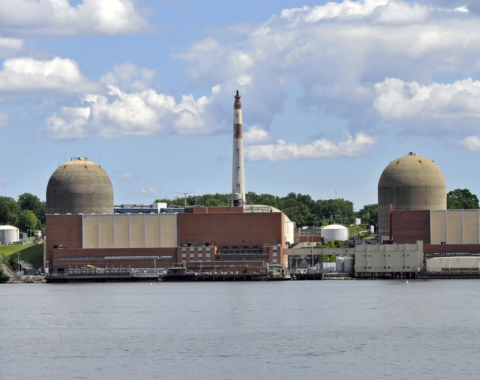Westinghouse has operated a fuel fabrication plant in Columbia, South Carolina for over 50 years – located in a wooded area of eastern Richland County. Now, Westinghouse is seeking a new 40-year-operating license for the plant, built in 1969.
Over these years of operation, the plant has a history of groundwater pollution, spills, leaks, and accidents. In 2016, federal regulators discovered a buildup of uranium in an air pollution control device that could have resulted in a burst of radiation. In 2018, contamination occurred from a leak of uranium solution – through a hole in the plant floor – discovered due to changes in groundwater pollution, causing neighbors within the Bluff Road / Hopkins community to raise concerns about their safety and well water contamination.
More recently, state regulators learned that an aging liner in a waste lagoon is wearing out, raising concerns of radioactive contaminants getting into the groundwater. South Carolina’s Department of Health and Environmental Control (DHEC) has called for a full environmental impact statement after finding rising pollution levels within the ponds on the site – ruling a smaller environmental study, completed in 2019, was not adequate.
In a recent letter, the Nuclear Regulatory Commission (NRC) notified Westinghouse that a more detailed environmental study was needed, due to multiple concerns, such as; what has caused Technetium 99, a radioactive material, to affect the property, another concern surrounds a new plume of uranium contamination found within the groundwater, as well as toxic compounds in wells below two lakes. “This new information reveals uncertainty related to the source and extent of contamination onsite and the potential future migration pathways offsite,” the letter said.
State Representative Wendy Brawley said a detailed study is warranted because her constituents have concerns that the pollution from the plant could pollute their well water. However, state regulators and Westinghouse say the contaminated groundwater remains on the site property. They also said, the flow of groundwater is toward the Congaree River, rather than homes in the Hopkins community. Congaree Riverkeeper, Bill Stangler, said a full environmental study is needed to help ensure the Congaree River and nearby creeks do not suffer from plant pollution. “We are concerned about the groundwater pollution on site that is migrating toward the creek and eventually the Congaree River,’’ Stangler said. “We are concerned about the overall safety of that facility and the potential for more releases.’’
According to NRC spokesman, Roger Hannah, the decision for a full environmental impact statement before deciding on relicensing marks the first time that the NRC has ever required this for a nuclear fuel fabrication plant.
The Columbia Westinghouse plant employs more than 1,000 people, and it is one of only three nuclear fuel factories of its kind in the United States. The plant, located a few miles from Congaree National Park, makes fuel rods for the nation’s atomic energy plants. Factories in North Carolina and Washington state also make nuclear fuel.
In seeking a new license, Westinghouse had hoped to get ahead of the lengthy process it can take to gain NRC approval. However, a detailed environmental study is expected to delay by a year any decision on a new license for the plant. The existing license does not expire until 2027.



